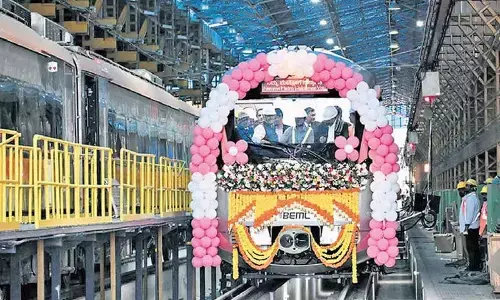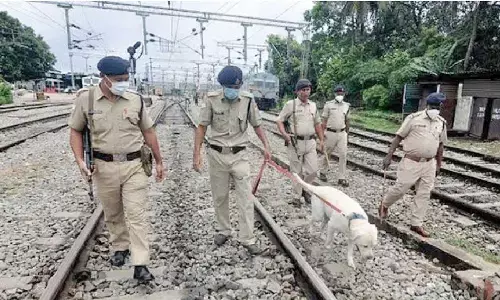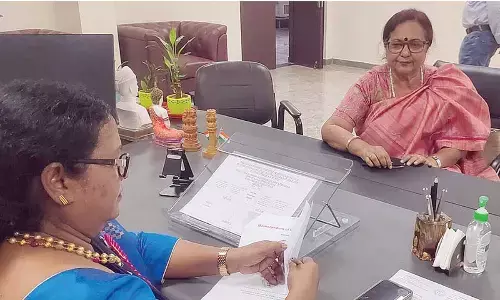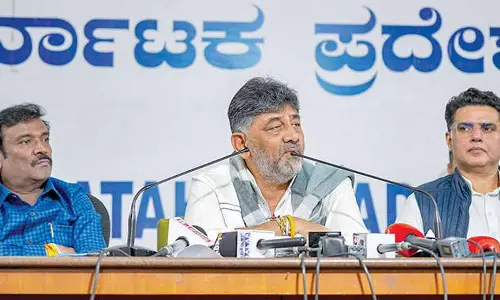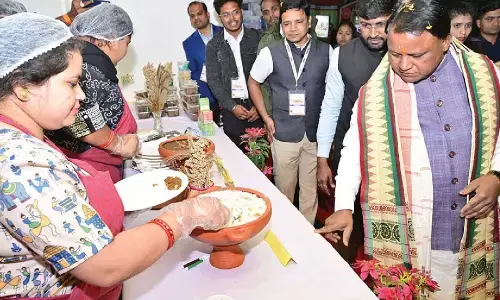World Lymphoma Day: Confronting Challenges and Offering Hope through Breakthrough Innovation
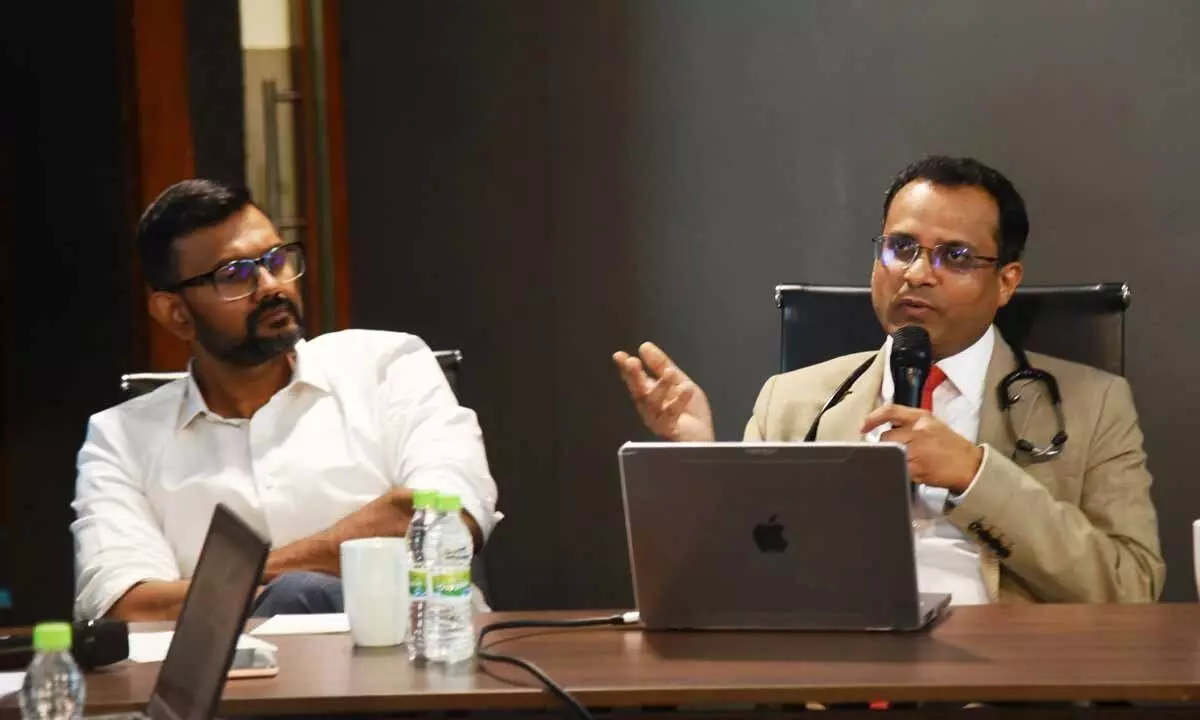
- Estimated 25,000 new cases of DLBCL are diagnosed annually
- In India, nearly 30-40% of people diagnosed with DLBCL do not survive for five years, which is worse than the global average
- 40% of all DLBCL patients relapse and face disease progression even after initial treatment.
- The first FDA-approved therapy for first-line treatment of DLBCL in almost 20 years is now available in India
- New treatment regimen reduce chance of the disease getting worse, relapse, or causing death by 27% compared to current treatment option
- 77% of patients who got the new treatment had no worsening of their disease after 2 years
● Estimated 25,000 new cases of DLBCL are diagnosed annually
● In India, nearly 30-40% of people diagnosed with DLBCL do not survive for five years, which is worse than the global average
● 40% of all DLBCL patients relapse and face disease progression even after initial treatment.
● The first FDA-approved therapy for first-line treatment of DLBCL in almost 20 years is now available in India
● New treatment regimen reduce chance of the disease getting worse, relapse, or causing death by 27% compared to current treatment option
● 77% of patients who got the new treatment had no worsening of their disease after 2 years
Hyderabad, September 11th: As the incidence of lymphoma – the most common type of blood cancer – continues to rise steadily in India, the need for advanced treatment options has become increasingly urgent. Diffuse Large B-Cell Lymphoma (DLBCL), the most aggressive form of non-Hodgkin lymphoma (NHL), alone accounts for around 25,000 new cases annually in the country. Despite existing treatments, nearly 40% of DLBCL patients face relapse or disease progression, creating significant challenges for patients, their families, and the healthcare system.
However, there is renewed hope as the first FDA-approved therapy for first-line treatment of DLBCL in almost 20 years is now available in India. This breakthrough marks a pivotal milestone in the fight against DLBCL, offering patients access to cutting-edge care and the potential for improved outcomes.
Challenges in Diagnosis & Treatment Pathway
While DLBCL is a highly treatable and potentially curable form of blood cancer, mortality remains concerning, particularly in patients with returning disease (relapse/refractory).
In India, nearly 30-40% of people diagnosed with DLBCL do not survive for five years, which is worse than the global average.
A significant issue in the treatment pathway is misdiagnosis and delayed referrals by general physicians, which often result in compromised treatment efficacy.
Limited progress has been made in improving patient outcomes in previously untreated DLBCL over the last two decades. While many patients are responsive to initial treatment, as many as four in ten people do not respond to initial treatment or relapse within two years after initial treatment. These patients face limited treatment options, which adds to the emotional and psychological toll on them and their families, who live in constant fear of the disease returning.
A Breakthrough After 20 Years
For the first time in nearly two decades, there has been a groundbreaking advancement in DLBCL treatment with a new drug: Polatuzumab in combination with chemotherapy. This is the first FDA-approved therapy in nearly 20 years for the first-line treatment of DLBCL, a hard-to-treat disease and the most common form of NHL. Polatuzumab is a first-in-class anti-CD79b antibody-drug conjugate (ADC).
Data from Polatuzunab trial data indicates a significant reduction of 27% in risk of progression-free survival, disease progression, relapse or death compared to the existing standard-of-care of MabThera/Rituxan plus cyclophosphamide, doxorubicin, vincristine and prednisone (R-CHOP)
Since the adoption of chemotherapy in 2002, approximately 11 clinical trials have failed to demonstrate improved clinical outcomes for DLBCL. Polatuzumab’s success is a remarkable breakthrough.
Globally, over 23,000 patients have been treated in the first-line setting, and the drug is now approved in more than 90 countries, underscoring its worldwide impact.
Polatuzumab in combination with chemotherapy is now also a preferred regimen for first line treatment of DLBCL treatment under National Comprehensive Cancer Network (NCCN) Clinical Practice Guidelines in Oncology.
Meeting Unmet Needs in DLBCL
The best chance of preventing relapse in people with DLBCL is with effective and tolerable therapy at the time they are first diagnosed and have received no prior treatment. When subsequent therapy is needed, the course of the disease tends to have worse outcomes.
Polatuzumab, an antibody-drug conjugate (ADC), offers hope for such patients by targeting specific proteins on lymphoma cells and delivering cytotoxic agents directly to the cancer cell.
Clinical data shows a 27% reduction in the risk of progression, relapse or death in patients treated with Polatuzumab in the first line. Furthermore, 77% of patients treated with this therapy were progression-free for two years, providing a lifeline to those who previously had limited options.
Dr Ganesh Jaishetwar, Head, Dept of Hematology & Bone Marrow Transplant at Yashoda Hospitals, “Despite major advances in DLBCL management in 2024, public awareness about DLBCL remains low. Increasing public knowledge about the symptoms and importance of early detection is critical. In India, where cancer-related stigma and delayed medical consultation are common, educating people about the significance of early medical intervention could improve survival of DLBCL.
Through increasing awareness, we can encourage earlier detection, more timely treatment with advanced therapy options like Polatuzumab, and improve survival outcomes. This message encapsulates the importance of both awareness and the progress made in treatment including those available in India like Antibody drug conjugate Polatuzumab, offering hope to those affected by this aggressive lymphoma. Together, let us continue to spread awareness, invest in early detection, and make use of cutting-edge therapies to give every patient the best possible chance of recovery.”
While talking about disease progression, Dr Pavan Kumar B, Consultant Medical Oncologist and BMT Physician, Basavatarakam Indo-American Cancer Hospital said, “newer treatments like Polatuzumab are specifically designed to target the disease more effectively. When given early to newly diagnosed patients, even those who are at high-risk, these therapies can significantly improve survival rates and overall outcomes.”








